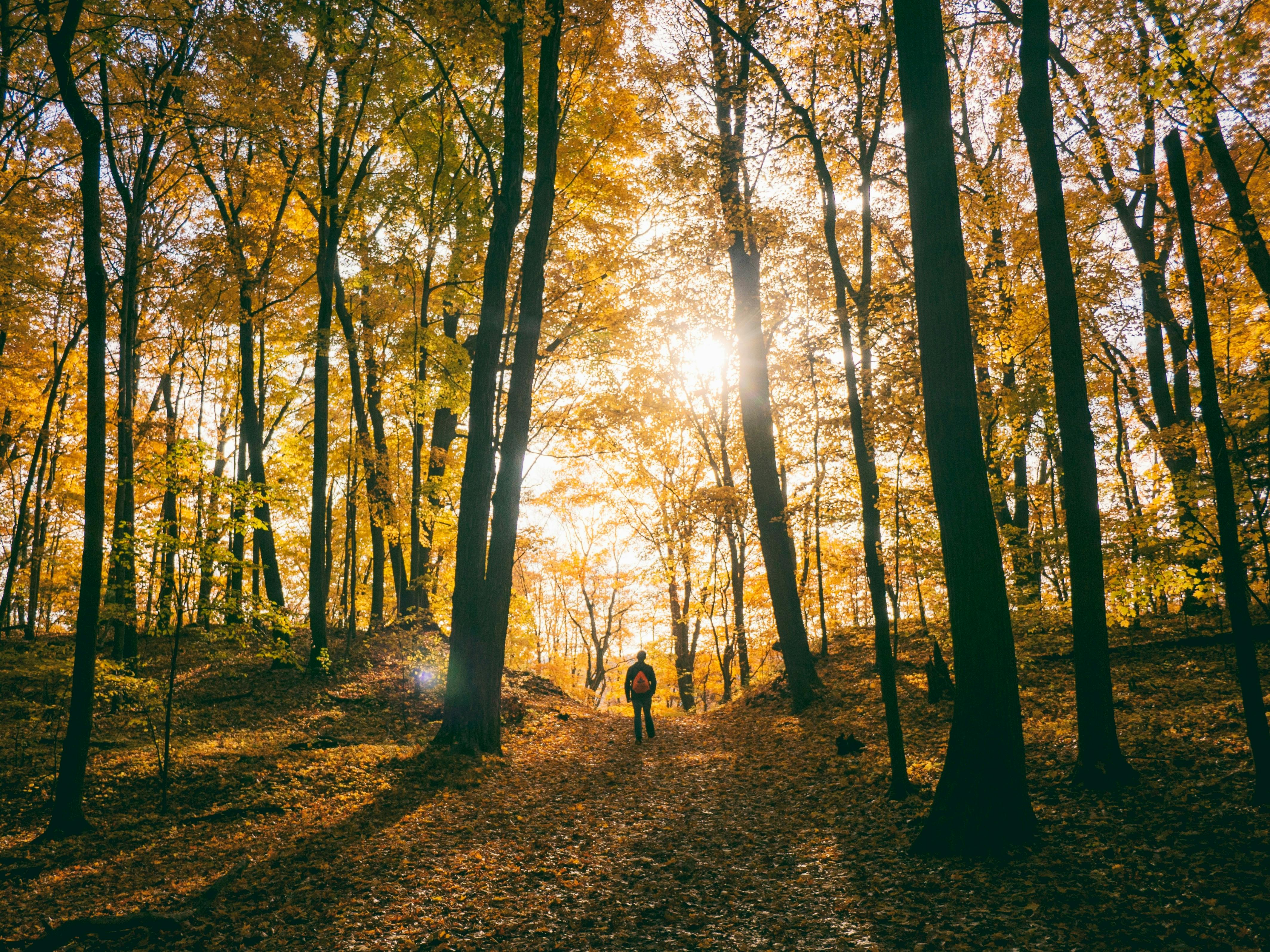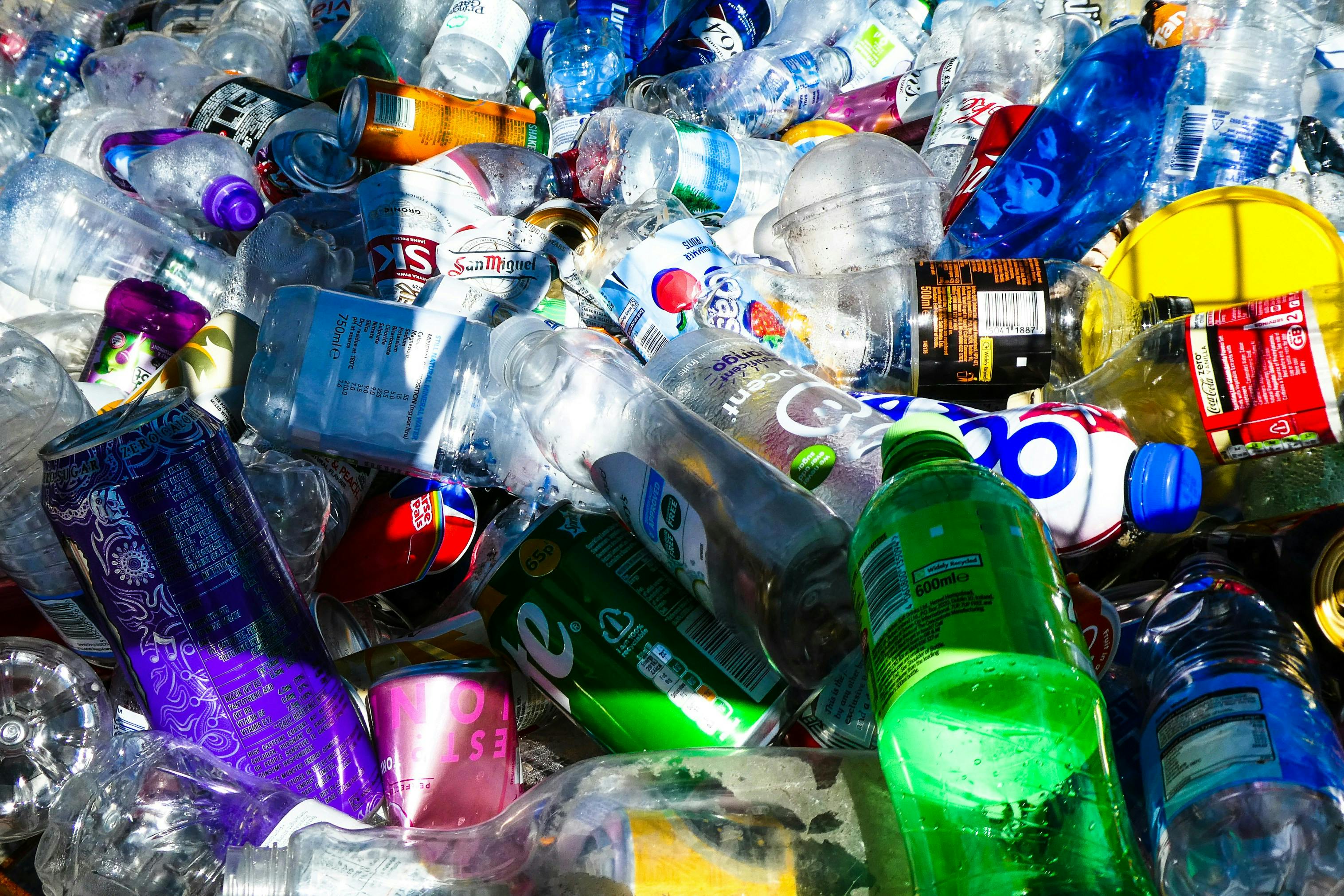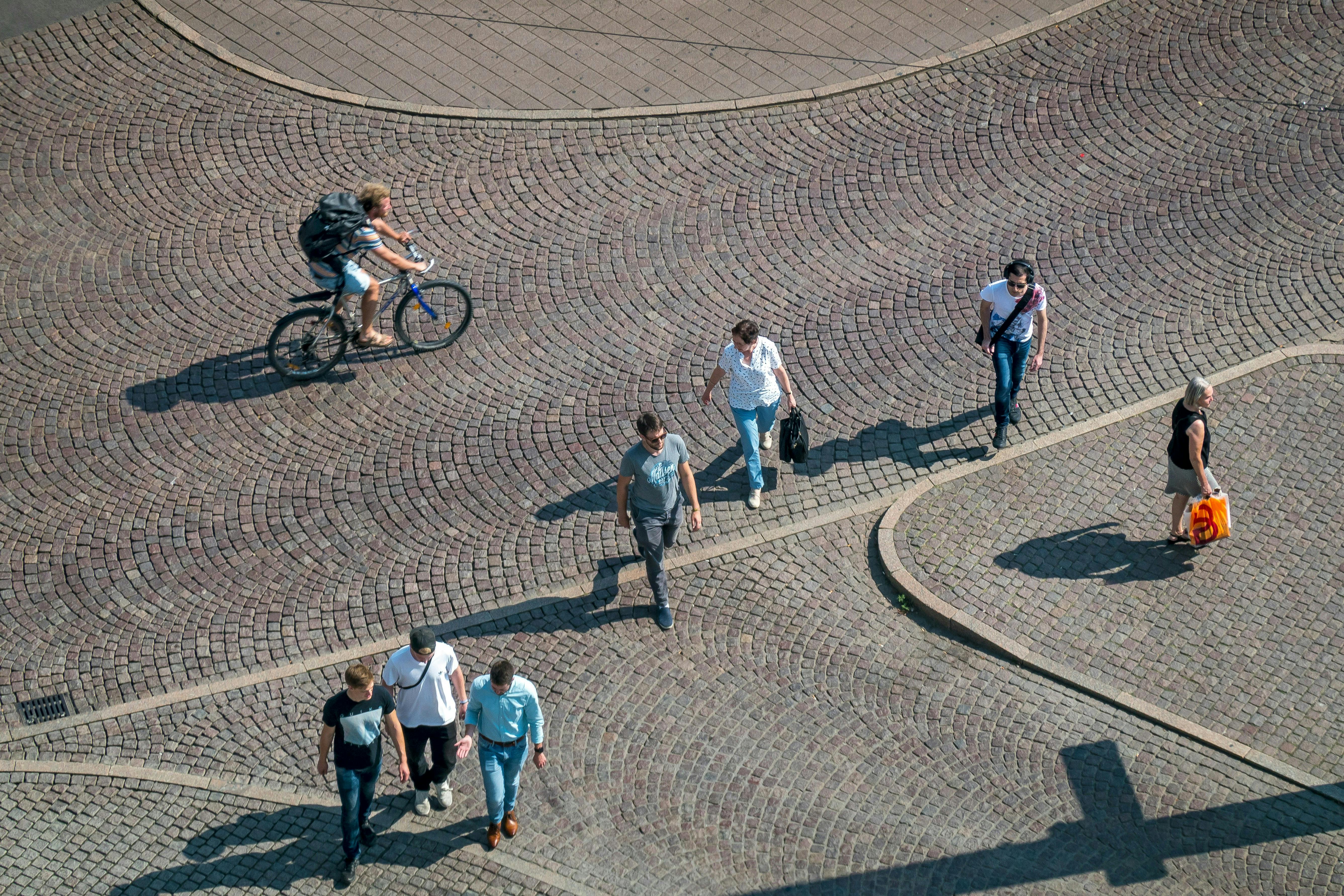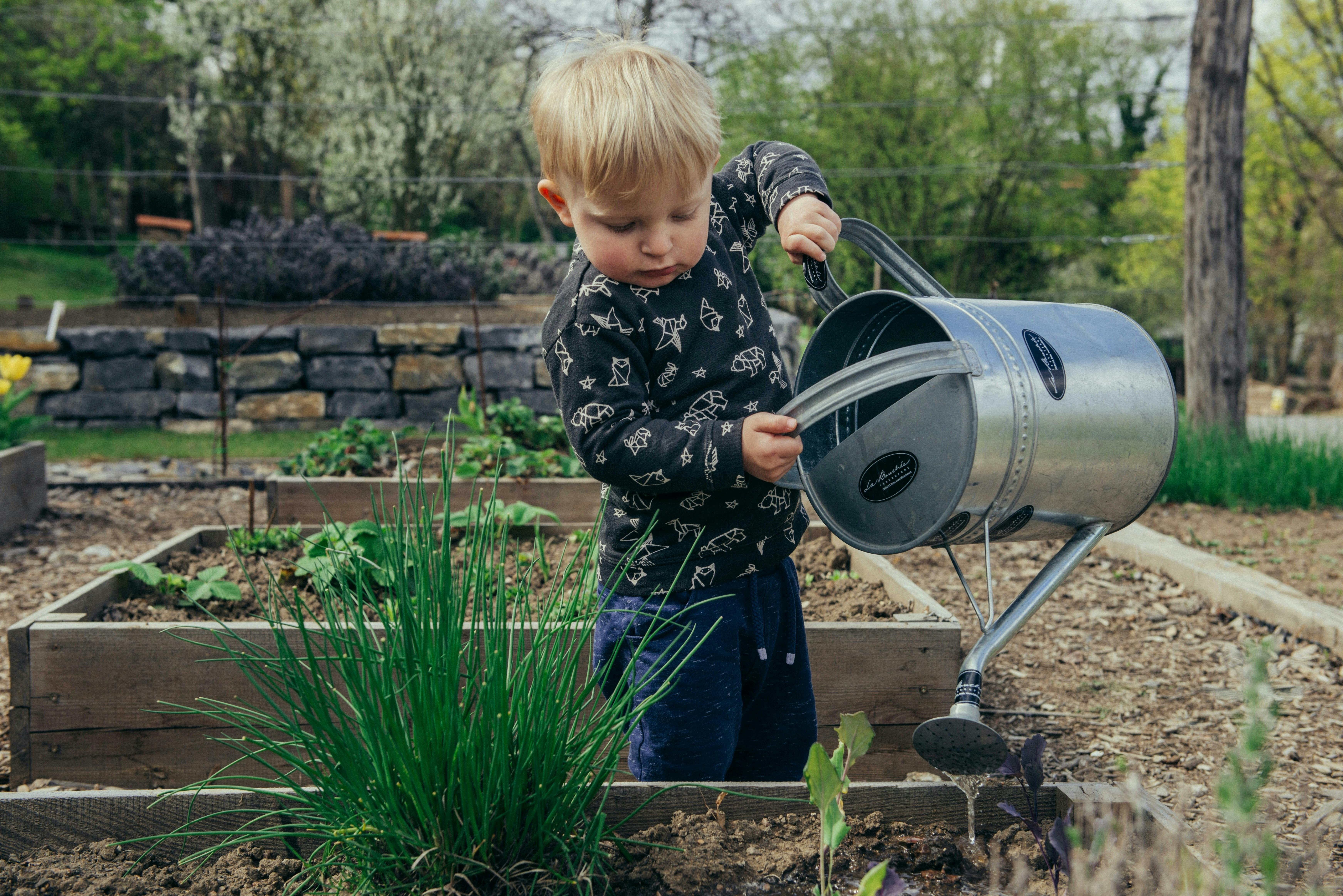Earth Day occurs once a year, but as a follower of Jesus, I regularly consider my impact on the planet.
While many Christians eschew environmental care as “earth worship,” I believe my faith demands I honor God the Creator by stewarding his creation well. The first pages of the Bible find God creating everything we see around us, then putting a man and woman in the midst of the world to “work it and take care of it” (Genesis 2:15). That’s a mandate I think Jesus’ people would do well not to ignore.
To be blunt, the planet’s not doing so well. Deforestation is taking swaths of trees much faster than we can plant them. There’s a floating pile of plastic in the Pacific Ocean twice the size of Texas. We’re dangerously close to the point of no return on climate change and experiencing the first waves of deadly climate-induced weather events. Ecosystems are in peril, approximately two billion people worldwide (still) don’t have access to clean water, and there’s a dump of thrown-away clothes in Chile so large you can literally see it from space. I could go on, but you get the point.
The problems are big—so big, it’s tempting to bury our heads and just ignore them. But I believe the God who commissioned the first couple to care for his plant hasn’t changed. He still expects his people to do that work. Caring for the planet is one of the few things that allows us to fulfill Christ’s great commandment in one fell swoop. We honor God by showing value to his handiwork, and we love others when we make choices that allow them to thrive.
It’s no secret that the poor, the disadvantaged, and the exploited stand to suffer the most from climate disasters. We might be inconvenienced by a blazing hot summer, but it’s people who can’t afford air conditioning who face death as the temperatures climb. Rising sea levels might not change my life in the Midwest, but for the thousands of people living on the coast of India with nowhere else to go, a few inches matter immensely.

I can’t fix all the earth’s environmental problems, but I can do my part. My faith has pushed me to ask hard questions of myself, like “Am I really doing everything I can? Is there new ground to be taken? Are my choices honoring the Creator and the most vulnerable around me?”
Earth Day comes around once a year, but I believe it’s the choices I make the other 364 days that show what I think of God, his planet, and the people he values so highly.
We can’t all install solar panels on our roofs or switch to electric cars (I can’t afford it either), but we can all be more intentional in the choices we make.
Whether you’re an experienced greenie with reusable shopping bags in your trunk or you’re new to this taking-care-of-the-earth thing, here are seven ways to push yourself to lessen your impact on the planet. Try one on for size today, and then keep going. Small steps every day are how you walk across the globe…or, in this case, help save it.
1) GO OUTSIDE
This is the easiest thing on the list and probably the one most of us are lacking in. Time outside is connected to a whole host of health benefits—it improves sleep, reduces depressive symptoms, is connected to better immune function, improved mental and physical health, and even better eyesight.
For the ancient writers of the Bible, the glory of God’s creation reminded them of his grandeur and helped put us in our rightful place (see Psalm 8:3-6 and Psalm 19 for two of my favorite examples). It’s hard to get lost in workplace stress, the latest doom-and-gloom scroll-a-polooza, or family drama when you’re walking through the woods, listening to the birds sing, or just sitting in the warm sunlight of a spring day.
Want to better steward God’s earth? Learn to enjoy it and spend time in it, and the motivation will come.
2) RRR
As a child of the 90s, “reduce, reuse, and recycle” was drilled into my head as much as my multiplication tables and the Preamble to the Constitution (“We the people of the United States, in order to form a perfect union…”).
It turns out that the three R’s are still some of the best advice when it comes to caring for the planet. Thirty years on from that marketing campaign that burned itself into my subconscious, we still haven’t really caught on.
The average American creates five pounds of trash every single day (to the tune of something like 1,800 pounds in a single year). The vast majority of that waste ends up in landfills. Despite the prevalence of recycling, America still only recycles about 32% of its waste. While not all waste is recyclable, the EPA estimates that up to 75% of thrown-away waste could have been. We can do better.

Recycling varies wildly by region and city, but a quick Google search will tell you what’s accepted in your neck of the woods. Then, it just becomes a simple choice to be aware of where your waste goes. When it can be turned into something else and saved from rotting in a landfill, everyone wins.
3) WASTE NOT, WANT NOT
You know the adage about never going grocery shopping when you’re hungry? The tendency to over-purchase is a hard one to break, no matter when you go to the store. But all the wasted food has a price.
About ⅓ of all food intended for human consumption is wasted—it either never makes it to the grocery store or (and I’m guilty of this) rots in our fridge while waiting to be eaten. This adds up to about 2.5 billion pounds of food wasted annually, or roughly enough to feed ⅓ of the entire planet. Yikes.
The EPA estimates that food reaches landfills more than any other throwaway product, totalling totaling about 24% of the solid waste stream. All that rotting food creates a lot of greenhouse gases. If food waste were a country, it would be the third highest emitter in the world—behind China and the US.
Want to reduce the food you toss? Purchase less, eat leftovers more, and share your food with friends and neighbors (I’ve made a habit of bringing leftovers to bundles of 20-somethings at work who forget about lunch). If you garden, food scraps can be turned into nutrient-rich compost with minimal effort.
Watching your food purchases won’t only help your budget line, it just might save the planet, too.
4) BE STREET SMART
While the vast majority of air pollution and greenhouse gas emissions come from industry, personal transportation accounts for about 30% of emissions in the US. Translation: when you can drive less, do it.
Of course, that’s not always an option. I have a 25-minute commute every day to work, crisscrossing major highways and interstates that make biking or walking an impossibility. But that doesn’t mean I’m out of options. Carpooling is a great way to reduce the number of cars on the road. Bundling errands for when I’m already out of the house ensures I’m not making multiple trips. Public transportation is an option. And when working from home is available, it’s a green choice I’ll readily make.

That said, I’m within walking and biking distance of my local library, grocery store, ATM, and favorite pizza joint. As the weather turns warmer, choosing non-motorized transportation will reduce my carbon footprint and leave me with calories to spend. It looks like I’ll get another slice of BBQ chicken pizza. Win, win!
5) LOCAL YOKEL FOR THE WIN
Shopping local isn’t just a mantra for the holidays. It can help lessen the environmental impact of your purchases year-round.
Again, it’s not always an option, but when I can, I like to purchase local—especially food. Eggs are a great example. My friend Jess has a farm north of Cincinnati, Ohio. Every week, she brings eggs she has raised herself to the office, and I get two dozen to go home with me. She leaves with a few extra dollars in her pocket, and I get the knowledge that my eggs come from chickens that are treated well and raised sustainably (If you have a strong stomach, Google modern egg production. Yuck.).
Commercial transportation has a significant environmental impact. Knowing that my omelet traveled just 30 miles to my plate instead of 700 makes a big difference.
I’ve managed to meet friends who raise bees and produce honey. Others hunt and share their game with us. My wife makes her own sourdough bread, and every year, our family plants a vegetable garden. Those tomatoes, cucumbers, and peppers not only help offset our grocery bill but become the most local food on our plates all year.
Local farmers markets buzz in the spring and summer and offer loads of options for good stuff grown, harvested, and prepared in your own backyard. Check ‘em out (and, fellas, it makes for a great date option).
6) SPEND WISELY
Every dollar you spend is a vote of confidence in the businesses behind the products you take home, so it’s important to make sure you know what your dollars are supporting.
Spending money on a meat packer that abuses the animals, discards its workers, and pollutes local streams gives them the power to keep on with business as usual. But the same dollar given to a farm with sustainable practices and respect for their animals helps perpetuate better environmental standards.
There’s loads of information online, but be sure you check multiple sources. Corporate greenwashing (marketing unsubstantiated claims about environmental policies) is a real thing. If you’re ready to go down the rabbit hole, this website is a great place to start.
Know this: when you shop wisely, you’ll likely spend more and get less. But you can count on the impact to keep growing.
7) GROW SOMETHING
Jesus spent a lot of time outdoors…which may explain why so many of his teachings have an agricultural bent. He often talked about plants and vines, seeds and sowers, soils, and farmers. It makes me wonder if, as our society grows less and less connected to the land, we are missing something that the early followers of Jesus had.

One possible answer is to grow something. It doesn’t really matter what it is. Plant a seed, water it, pull the weeds, fight the bugs, and watch it bloom. In a fast-paced world, the requirement to slow down and grow doesn’t just apply to the plant under your care—it’s a lesson for you, too.
Learning to adjust our lifestyles to better honor the Creator and his creation takes time. Be patient with yourself. Small steps over time add up to huge gains. I’m not perfect at this either, but working together, we just might find ourselves serving God and saving the planet at the exact same time.
Disclaimer: This article is 100% human-generated.
Reflections to share? Got an idea for an article? Email us at articles@crossroads.net
At Crossroads, we major on the majors and minor on the minors. We welcome a diverse community of people who all agree that Jesus is Lord and Savior, even if they view minor theological and faith topics in different ways based on their unique experiences. Our various authors embody that principle. Therefore, there are many viewpoints expressed in our articles that don’t necessarily fit with the opinions of our leadership. We are okay with that. And we think God is ok with that, too. The foundation of everything we do is a conviction that accepting Jesus as who he said he was leads to a healthy life of purpose and adventure—and eternal life with God.
Already recycling? You can level up by doing the other two R’s.
- Reduce your non-recyclable waste stream by checking out the Hefty Renew Program. They’ve figured out how to reuse a TON of previously unrecyclable materials, including styrofoam. It’s a game-changer that will greatly reduce the amount of trash you create. While it’s not available everywhere (yet), it is making a huge splash in my hometown of Cincinnati. Find out if your hometown is participating at the link above.
- Get creative on where you can reuse items in your everyday life. I keep a Yeti mug at my desk at work and refill it with coffee every day instead of doing a Starbucks run or using a styrofoam cup. I also have a plate and fork that I leave at work, so when leftovers present themselves, I don’t have to reach for a paper plate. Keeping reusable shopping bags in the back of the car is a hack when you go to the grocery, and a reusable water bottle can save up to 156 plastic bottles from littering landfills and oceans.
- When you can reuse, instead of tossing, do it! Old clothes can become cleaning rags. Unwanted furniture can be donated to local thrift shops. Unneeded tools (or anything else) can be posted on Facebook Marketplace—list it as free and I can almost guarantee somebody will come get it. Give books to your local library, toys to a shelter, or quality baby items to a pregnancy resource center. When it comes to reusing items, a little Googling can go a long way.










